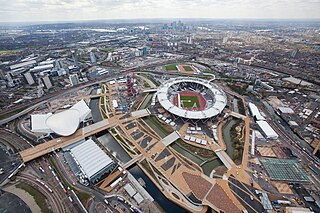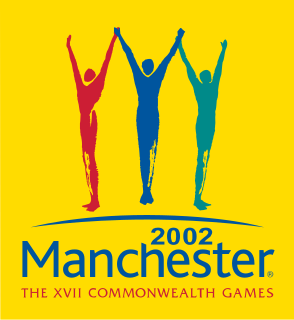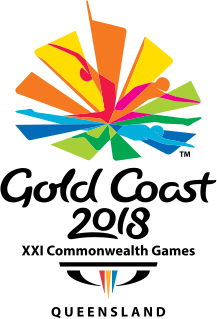
The Commonwealth Games, often referred to as the Friendly Games, is an international multi-sport event involving athletes from the Commonwealth of Nations. The event was first held in 1930, and, with the exception of 1942 and 1946, has taken place every four years since then. The Commonwealth Games were known as the British Empire Games from 1930 to 1950, the British Empire and Commonwealth Games from 1954 to 1966, and British Commonwealth Games from 1970 to 1974. Athletes with a disability are included as full members of their national teams, making the Commonwealth Games the first fully inclusive international multi-sport event. In 2018, the Games became the first global multi-sport event to feature an equal number of men's and women's medal events.

A multi-sport event is an organized sporting event, often held over multiple days, featuring competition in many different sports among organized teams of athletes from (mostly) nation-states. The first major, modern, multi-sport event of international significance was the Olympic Games, first held in modern times in 1896 in Athens, Greece and inspired by the Ancient Olympic Games, one of a number of such events held in antiquity. Most modern multi-sports events have the same basic structure. Games are held over the course of several days in and around a "host city", which changes for each competition. Countries send national teams to each competition, consisting of individual athletes and teams that compete in a wide variety of sports. Athletes or teams are awarded gold, silver or bronze medals for first, second and third place respectively. Each game is generally held every four years, though some are annual competitions.

The 2002 Commonwealth Games, officially known as the XVII Commonwealth Games and commonly known as Manchester 2002 were held in Manchester, England, from 25 July to 4 August 2002. The 2002 Games were to be hosted in the United Kingdom to coincide with the Golden Jubilee of Elizabeth II, head of the Commonwealth, and Manchester was selected for the 2002 Games ahead of London. The 2002 Commonwealth Games was, prior to the 2012 Summer Olympics, the largest multi-sport event ever to be held in the UK, eclipsing the London 1948 Summer Olympics in numbers of teams and athletes participating. In terms of sports and events, the 2002 Games were the largest Commonwealth Games in history featuring 281 events across 17 sports.

The 2006 Commonwealth Games, officially the XVIII Commonwealth Games and commonly known as Melbourne 2006, was an international multi-sport event for members of the Commonwealth held in Melbourne, Victoria, Australia between 15 and 26 March 2006. It was the fourth time Australia had hosted the Commonwealth Games. It was also the largest sporting event to be staged in Melbourne, eclipsing the 1956 Summer Olympics in terms of the number of teams competing, athletes competing, and events being held.

The 1958 British Empire and Commonwealth Games were held in Cardiff, Wales, from 18–26 July 1958.

The 1986 Commonwealth Games were held in Edinburgh, Scotland, between 24 July and 2 August 1986. They were the second Games to be held in Edinburgh.
A demonstration sport is a sport which is played to promote it, rather than as part of standard medal competition. This occurs most commonly during the Olympic Games, but also at other sporting events.

The 2014 Commonwealth Games, officially known as the XX Commonwealth Games and commonly known as Glasgow 2014,, was an international multi-sport event celebrated in the tradition of the Commonwealth Games as governed by the Commonwealth Games Federation (CGF). It took place in Glasgow, Scotland, from 23 July to 3 August 2014.

The Commonwealth Youth Games (CYG) is an international multi-sport event organized by the Commonwealth Games Federation. The games are held every four years with the current Commonwealth Games format. The first edition was held in Edinburgh, Scotland from 10–14 August 2000. The age limitation of the athletes is from 14 to 18.
Rugby sevens has been played at every Commonwealth Games since its first appearance at the 1998 edition held in Kuala Lumpur, Malaysia. Rugby sevens was an optional sport that was included for 2002 and 2006; it was then made a 'Core' sport by the Commonwealth Games Federation, necessitating its appearance at all future games from the 2010 Games onward. New Zealand dominated the men's tournament at its inception until 2014 when they lost for the first time at the Games, playing South Africa in the gold medal match.

The Commonwealth Games sports comprise all the sports officially recognised and approved by the Commonwealth Games Federation (CGF). There are a total of 16 core sports and a further 4 core para-sports that are competed at every games. In addition, the CGF allow organising committees to choose from various optional sports and disciplines to complete their games' program.

The 2018 Commonwealth Games, officially known as the XXI Commonwealth Games and also known as Gold Coast 2018, was an international multi-sport event for members of the Commonwealth that were held on the Gold Coast, Queensland, Australia, between 4 and 15 April 2018. It was the fifth time Australia had hosted the Commonwealth Games and the first time a major multi-sport had an equal number of events for male and female athletes.
Sally Johnston is a competitive sport shooter from New Zealand. She started shooting in 1983 with her first international competition in 1995 at the Oceania Championships in Auckland. Johnston placed eighth in the 50m rifle three positions and ninth in the 10m air rifle. In 1997 she beat her personal bests in all three events at the Oceania Championships in Adelaide where she placed fourth in the 50m rifle prone, tenth in the 10m air rifle and eleventh in 50m rifle three positions event.
Athletics is one of several sports contested at the quadrennial Commonwealth Games competition. It has been a Commonwealth Games sport since the inaugural edition of the event's precursor, the 1930 British Empire Games. It is a core sport and must be included in the sporting programme of each edition of the Games.
Cycling is one of the sports at the quadrennial Commonwealth Games competition. It has been a Commonwealth Games sport since the second edition of the event's precursor, the 1934 British Empire Games. It is an optional sport and may, or may not, be included in the sporting programme of each edition of the Games, but has appeared in every edition of the Games to date.
Gymnastics is one of the sports at the quadrennial Commonwealth Games.
Weightlifting is one of the sports at the quadrennial Commonwealth Games competition. It has been a Commonwealth Games sport since 1950. It is a core sport and must be included in the sporting programme of each edition of the Games.
Diving is one of the sports at the quadrennial Commonwealth Games competition. It has been a Commonwealth Games sport since the inaugural edition of the event's precursor, the 1930 British Empire Games. It is an optional sport and may or may not be included in the sporting programme of each edition of the Games.

The 2022 Commonwealth Games, officially known as the XXII Commonwealth Games and commonly known as Birmingham 2022, is an international multi-sport event for members of the Commonwealth that is scheduled to be held in Birmingham, England from 28 July to 8 August 2022. Birmingham was announced as host on 21 December 2017, marking England's third time hosting the Games behind Manchester 2002 and London 1934. The Games were originally awarded to Durban, South Africa, which withdrew in 2017 due to financial issues.
Rowing is one of the sports at the quadrennial Commonwealth Games competition. It has been a Commonwealth Games sport since 1930. It was held at every edition from 1938 to 1962, but was not held again until 1986, and has not been part of the Games program since. It is an optional sport and may, or may not, be included in the sporting programme of future editions of the Games.









